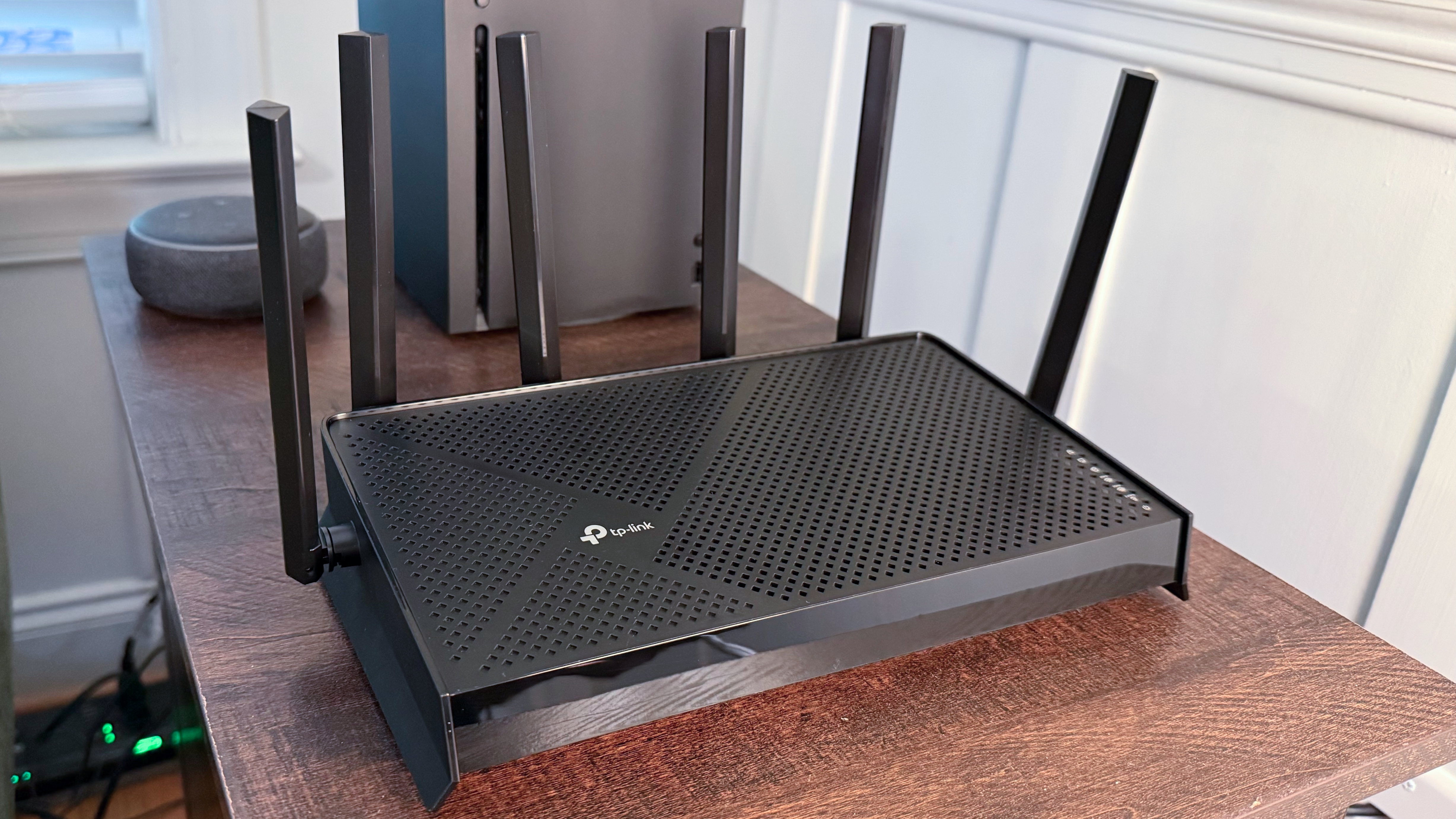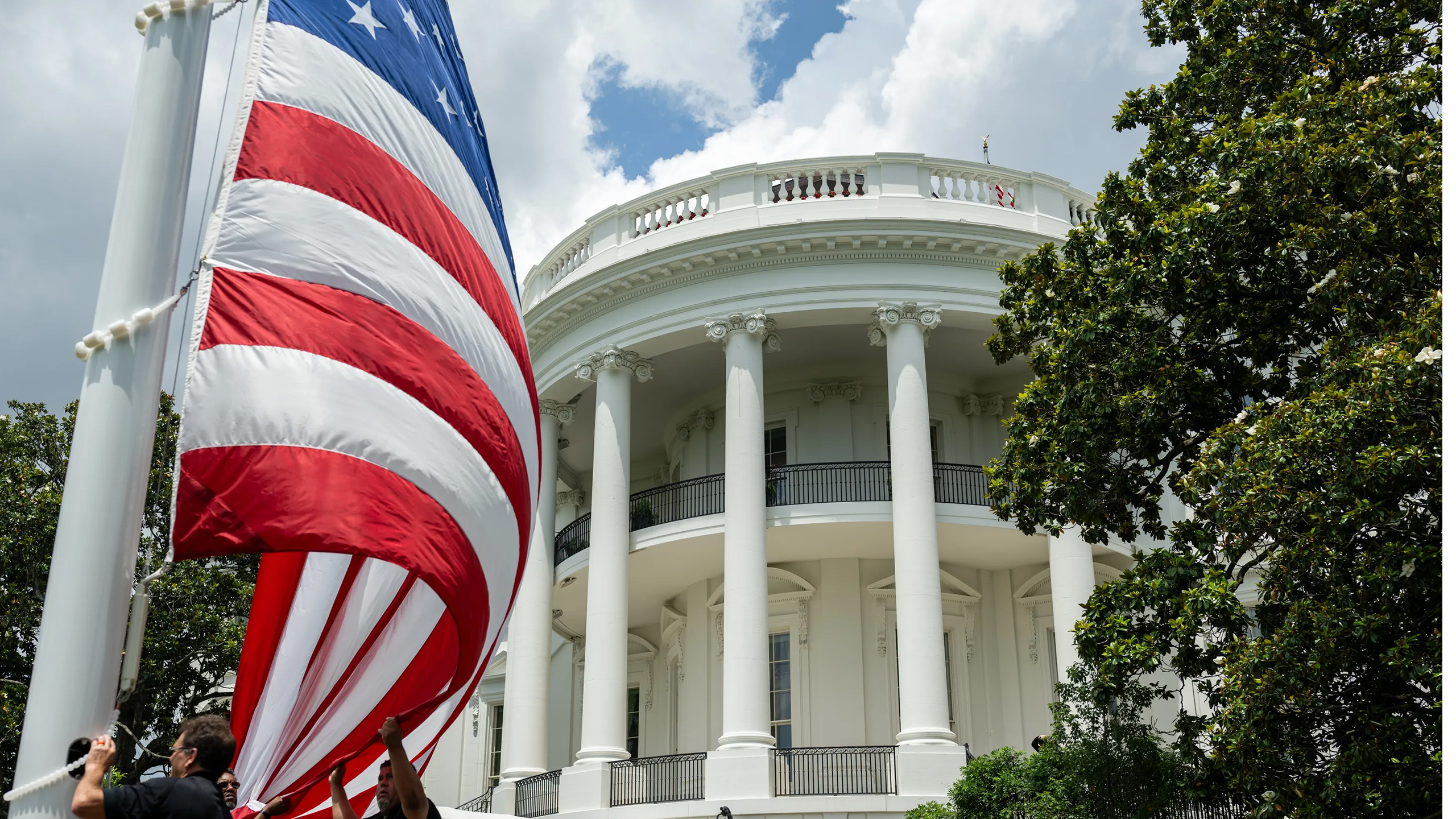TP-Link routers face potential U.S. ban over alleged China-related national security concerns — company "vigorously disputes" Department of Commerce's findings
Routers are about to get a whole lot more expensive.

After facing intense scrutiny from several agencies for more than a year, the U.S. government is considering banning TP-Link routers outright, courtesy of a proposal from the Department of Commerce, backed by the Justice Department, Department of Defense, Homeland Security, and more. According to the Washington Post, the White House is concerned about national security due to TP-Link's close ties to China, a claim the company fervently denies in its statement, reiterating it will continue business operations as usual. It's also prepared to legally challenge any unfair treatment if the government goes through with the ban.
Although some reports suggest that TP-Link controls upwards of 65% of the U.S. router market, the company affirms that its share of the "residential Wi-Fi router" market in North America is under 10%, according to Dell'Oro market research. The company offers networking gear at lower prices than its competitors, especially in budget segments — something it's already under investigation for by the Department of Justice. Moreover, the Department of Commerce had been looking into TP-Link since last year, when it first flagged the company for ties to China, a concern exacerbated by the Salt Tycoon attacks on telecom providers in December 2024. Three months from that, Rep. Raja Krishnamoorthi said, "don't use this" while holding up a TP-Link router in front of Congress.
TP-Link has previously denied any links to China, refuting any allegations of national security, citing that it's a U.S.-based company. See, the actual, overarching TP-Link, known as TP-Link Technologies, is indeed headquartered in China, but in 2022, "TP-Link Systems" was spun off into its own, separate entity that operates out of the U.S. and has been manufacturing routers in Vietnam since 2018. The company's response to a potential ban today echoes that same sentiment, hoping for a positive outcome through coordination.
TP-Link's official statement to Tom's Hardware reads:
"No official action or confirmation has been made by any agency or the White House regarding these allegations. The article reported that Commerce may still decide not to issue the ban, or could reach an agreement with TP-Link for a different resolution of its concerns.
TP-Link Systems vigorously disputes any allegation that its products present national security risks to the United States. The company remains as committed as ever to supplying secure and high-quality products to the U.S. market. As we told the Washington Post, any concerns the government may have about TP-Link are fully resolvable by a common-sense mix of measures like onshoring development functions, investing in cybersecurity, and being transparent.
TP-Link will continue to work with the U.S. Department of Commerce to ensure we understand and can respond to any concerns the government has. We also reserve all our legal rights as a U.S. company to challenge any proposed adverse action that lacks a basis in fact or treats TP-Link unfairly. TP-Link fully expects to continue its business as usual with no interruption to its sales in the U.S. market."
Get Tom's Hardware's best news and in-depth reviews, straight to your inbox.

The official process for the Department of Commerce's proposal consists of two 30-day-long phases. First, after initiating the ban (following approval from other government agencies), TP-Link would be given a month to respond. Then Commerce would have its own month to decide whether to continue with the ban, taking into account TP-Link's objections. This is likely the period when negotiations will take center stage, as the two parties work out all the details. That being said, the Department of Commerce has made it clear that nothing short of a ban would suffice in this case.
China-related national security concerns have picked up steam under the Trump administration, which entered a temporary tariff truce with Beijing last week — likely what's keeping the ban from taking effect immediately — but tensions continue to escalate. Despite being an American company, TP-Link Systems remains an alleged threat to the government, which claims that spying software can be installed on these routers by simply pushing a state-mandated update from China, which TP-Link Technologies (its parent) would need to comply with.
At this point, nothing has been set in motion, and we could very well see a deal being worked out between Washington and TP-Link; otherwise, this would become one of the most significant technological bans in the country's history, joining the ranks of Huawei, whose legacy infrastructure is still being phased out by network providers. A ban on TP-Link routers would shake up the market considerably, leaving a clear gap for value-oriented buyers who relied on the company's hardware. Many network providers worldwide already use TP-Link routers as their default.

Follow Tom's Hardware on Google News, or add us as a preferred source, to get our latest news, analysis, & reviews in your feeds.

Hassam Nasir is a die-hard hardware enthusiast with years of experience as a tech editor and writer, focusing on detailed CPU comparisons and general hardware news. When he’s not working, you’ll find him bending tubes for his ever-evolving custom water-loop gaming rig or benchmarking the latest CPUs and GPUs just for fun.
-
jp7189 Tplink devices work well and are very cheap. Make sense they own a large part of the market. I have no knowledge of any backdoor, but if they do it's not like salt typhoon was doing them any favors. It reminds me of how volt typhoon controlled every fortigate firewall for a while and it was only discovered when other hacking groups started to fight them for control of said firewalls that folks noticed.Reply -
Angel Fernandez This is my personal experience with a TP Link Archer AX 3000.Reply
I started finding my VPN/Firewall and its advanced security settings turned off!
After confirming that it was up and running.
I switched to a different VPN/Firewall. The same thing kept happening.
I low level formatted every drive I had and reinstalled Windows without connecting to the internet.
The same issue kept reoccurring when I was connected to the internet.
But this was the clue that helped me figure out what was going on.
Someone logged into my Diablo 3 account, on the Far East servers.
It wasn't me and I don't Sleepwalk or sleep game.
I'm waiting for Black Friday to replace what I think is a spyware loaded router.
Luckily, I have an air gapped machine that I keep my private data on.
Cheap doesn't mean good!